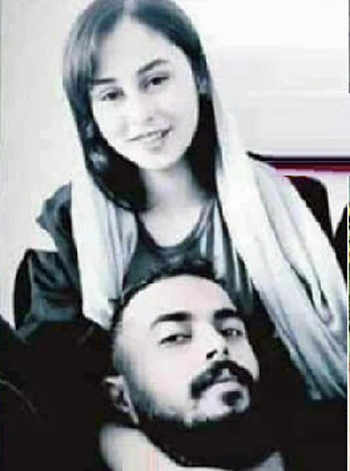By Mark Ellis —

Reza Ashrafi was enraged when he learned his daughter Romina was about to run away with her 29-year-old boyfriend.
Because he thought this would bring shame or dishonor to the family, he sought advice from an attorney about the penalty he might face if he killed his daughter – a so-called honor killing, an Islamic cultural tradition.
Reasons for honor killing may include an unwanted divorce, refusing to enter an arranged marriage, having premarital or extramarital sex, becoming the victim of rape or sexual assault, dressing in western-style clothing, engaging in homosexuality, or renouncing the Muslim faith.
The lawyer told him he would not face capital punishment but likely three to 10 years in jail, according to a report by the New York Times.
“Murder in Iran is subject to the death penalty under the Shariah mandate of ‘an eye for an eye.’ But the penal code, based on Islamic law, exempts a guardian from capital punishment for killing his child. A child’s father and paternal grandfather are considered legal guardians,” according to The Times.
Reza had issued threats multiple times before he carried out the grisly deed.

The two argued because she let her hair dangle outside her scarf and posted pictures of herself on Instagram without a hijab, in western-style dress, her raven-black hair fully uncovered.
Romina’s older boyfriend rode a motorcycle and had a tattoo. He had been courting Romina since she was 12 and even proposed marriage. In Iran, girls can marry with their father’s approval at age 13.
But her father rejected the proposal because he didn’t like the boyfriend’s family – apparently not because of their age difference.
He confiscated Romina’s phone, kept her at home and began to threaten and terrorize her. One evening he came home with rat poison and rope, encouraging Romina to commit suicide so he wouldn’t have to kill her, according to The Times.
In response, Romina ran away, leaving a note behind.

“Baba you wanted to kill me,” she lamented. “If anyone asks you where Romina is, tell them I am dead.”
Three days after she ran away, Mr. Ashrafi discovered her hide-out, called the police, and the authorities located her.
Romina pleaded with police not to send her home with her father, telling them of his threats. But her father assured police Romina would be safe under his care.
But the night after her return, Ashrafi crept into the bedroom where the girl was sleeping and decapitated her with a farming sickle.
Extent of the problem
A 2019 report by a research center in Iran found that nearly 30 percent of all murder cases in the country were honor killings of women and girls.
Women’s advocacy groups believe that more than 20,000 women are killed worldwide in such honor killings, the BBC reported.
But murder is not the only form of honor crime. Honor crimes may include acid attacks, abduction, mutilation, and beatings. Police in the UK recorded at least 2,823 such crimes in 2010.
Romina’s killing touched off a national debate about crimes against children and led to the passing of a law June 7th making it a crime to emotionally or physically abuse or abandon a child, Iran’s first legal protection for children and juveniles.
Iranian media referred to the new legislation as “Romina’s law” and said if it had passed a few weeks earlier, Romina might still be alive, according to The Times.
Romina’s father is in jail awaiting trial. He still faces a maximum jail sentence of 10 years.
While women in Iran have more work opportunities than in some other Middle Eastern countries, they must cover their hair and arms in public and avoid provocative clothing. They must have the permission of a male relative to leave the country, ask for a divorce or work outside the home, according to The Times.
Domestic violence is thought to be widespread, and the chief of Iran’s family protection agency said that reports of domestic violence had tripled during the coronavirus lockdown, with its hotline receiving 4,000 calls a day.
“In Romina’s village of Lamir, population 600, her school girlfriends still trek up the hill to the cemetery on most days. They lay yellow and purple wildflowers on her grave, and whisper a prayer that this will not be their fate.”



